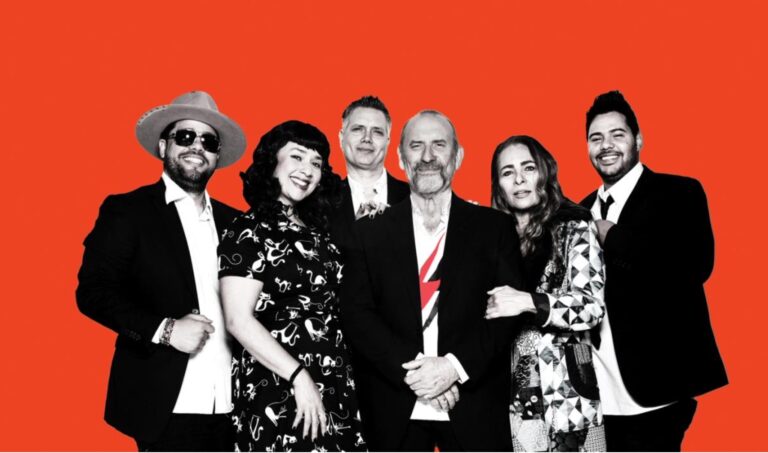
Whitlam legacy lives on in Glebe

By Chris Sutton
Edward Gough Whitlam passed away last week at age 98 but his influence on the revival of Glebe will not be forgotten.
“Few places in Australia are richer in history than the inner-Sydney suburb of Glebe,” wrote Mr Whitlam.
Mr Whitlam created the Department of Urban and Regional Development (DURD) which purchased and renewed buildings for residents and led to Glebe becoming one of the more prosperous and recognised suburbs in Sydney.
This also stopped the building of a freeway, as 700 buildings were erected in the planned construction site, beginning the revitalisation of Glebe.
Mr Whitlam’s approach defined the NSW housing commission during a time where clearance and the building of high-rise construction were at a premium.
He worked closely with Tom Uren, who said the Glebe Estate purchased in 1974 was for three reasons: to protect the people, to protect the ageing townscape and to stop the Askin government driving a freeway straight through it.
The strength of the community was a factor acknowledged by Mr Whitlam.
Councillor Linda Scott spoke to City Hub about Gough Whitlam and his impact on inner city Sydney, including the critical decision to purchase land in Glebe.
“This decision saved the residential nature of our inner city. Sydney has evolved into a residential city that grasps to save our open space while we can. These guys (Whitlam and Uren) pioneered the environmental movement before it was trendy.”
Cr Scott believes that aside from being a visionary, the decisions made have allowed all residents to reap the benefits. When asked what Glebe would be today if not for Mr Whitlam, Cr Scott was clear.
“Glebe would be a freeway. Glebe would not be Glebe. I think that Gough Whitlam had a real understanding about the needs of ordinary Australians. He really understood that cities need infrastructure.”
Infrastructure was a key factor in the direction the Whitlam government took, an area that Cr Scott said stills needs attention.
“He built libraries, he built childcare centres, and he built pools. But the southern part of the city still doesn’t have a pool, there aren’t enough childcare centres. We still don’t have the infrastructure we need.”
Before Mr Whitlam passed away, the City of Sydney Council unanimously voted to restore previously removed signage to Whitlam Square, an intersection of major streets named after a rally that occurred in Hyde Park following his dismissal. Plaques with history detailing his role in inner city Sydney are now in the pavement.
Mr Whitlam was one of Cr Scott’s pre-selectors when she began her role in politics. She remembers calling his house phone, to which he answered “Hello, Whitlam residence” and was humble in his approach. He gave Cr Scott a great lecture that she recalls with laughter.
“He was very supportive, which I am personally grateful for. Wise – that’s the word I’d use to describe him – just so wise.”
Past president of The Glebe Society John Gray spoke to City Hub about the impact Gough Whitlam had on Glebe.
“Without the Whitlam government we would never have been able to have the Glebe Estate. If the freeway had of been installed, Glebe would’ve been finished. Glebe would have been nothing more than rubble. The entire Victorian townscape would have been knocked down for a horrific road.”
Mr Gray is concerned about the current threats to Glebe. He critically compared the Whitlam government to that of the government today.
“You really see the difference between governments which have a care for the community and try to provide people with housing as a right, and governments which look upon housing as merely an asset to sell.”
Like Mr Whitlam, Mr Gray believes in the resilience of the Glebe community despite the challenges he calls “short-term, non-thinking economics” that continue to pose a threat to the suburb.
“We’ve already demonstrated once before that you can line up the bulldozers on Glebe Point Road and we’ll stand up against them. And we’ll do it again if we have to. The Glebe community isn’t a pushover, it never has been, and the current government will discover that too.”
Mr Whitlam was always open in his assessment about what needed to change.
“No other western nation has cities in which the incidence of urban sanitation is so primitive or so ludicrous as in the cities of Australia. We are the most effluent nation in what Liberals call the free world,” said Mr Whitlam.
His legacy will live on as those influenced by his example appreciate the decisions made during his short term as the Prime Minister of Australia. But Cr Scott said current generations might be unaware of the revival of the suburb.
“People in Glebe especially may not understand the benefits their parents and grandparents have received because of his decisions,” said Cr Scott.









